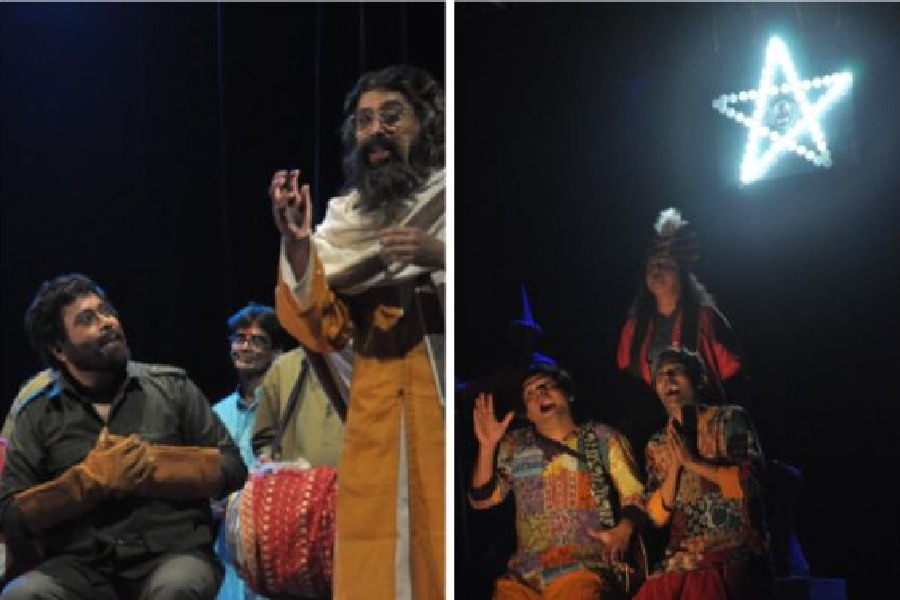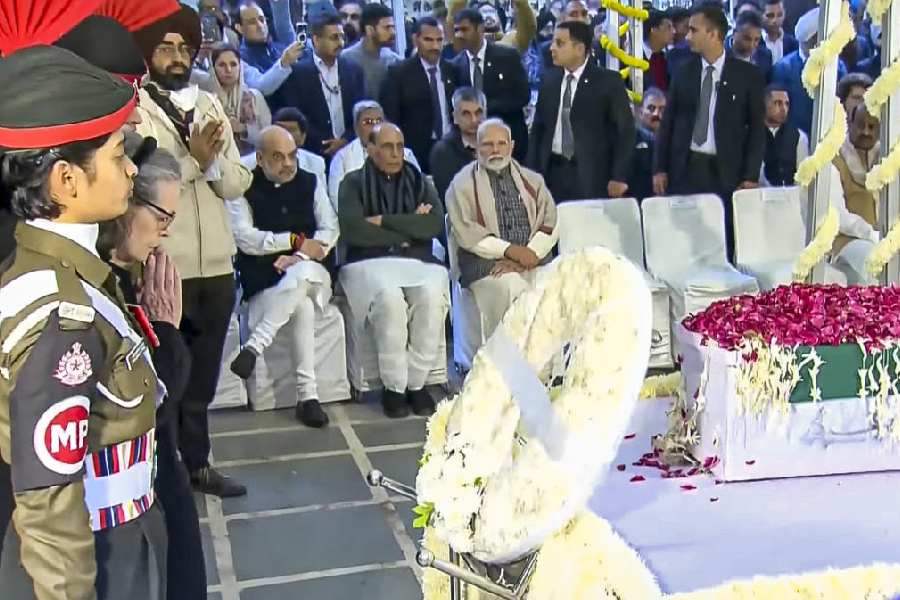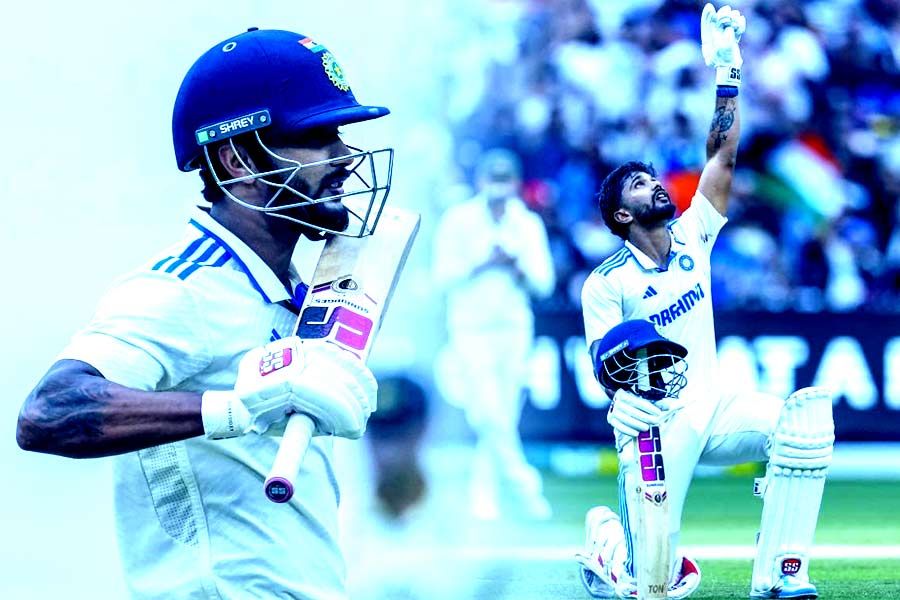What if the location of Ramesh Sippy’s Sholay shifted from Ramgarh to Santiniketan? What if Thakur, played by Sanjeev Kumar, turned into the ‘Thakur’ that Bengalis revere, that is, Rabindranath Tagore? Considering the ongoing hullabaloo surrounding Santiniketan, what then would be the modus operandi of Gabbar Singh and his band of dacoits? Would our Thakur, with his ashram spreading out to the sky and the river, succeed in transforming Gabbar? Daydreaming, huh? Not quite, for that’s how Raja Bhattacharya decided to present Chashme Vaddoor (picture, left), the latest from Blank Verse (Girish Mancha, February 24).
Bhattacharya’s decision to field young actors to play most of the parts except for Thakur (Bhattacharya himself) and Gabbar (Debsankar Halder) adds to the fantasy. By flirting with popular elements, producing parodies with gay abandon, and mixing the iconic dialogues from the film with nuggets from Tagore’s oeuvre, Bhattacharya starts with a bang. However, the momentum keeps falling soon after and drags a lot post-interval. Few sequences that ape the original film and one brilliantly executed picnic-by-the-river scene where Gabbar flips through the pages of Sahaj Path save Chashme Vaddoor. The children and the teenagers, clothed and made-up in accordance with their parts, enjoy their bits, and Halder comes out of his comfort zone to etch a not-so-menacing but lovable Gabbar.
Goopy and Bagha, the iconic duo from Satyajit Ray’s film, return to the contemporary stage in Oihik’s Satyabachan (Tapan Theatre, May 2). Scripted and directed by Arindam Roy, Satyabachan (picture, right) finds the duo (Roy and Riddhibesh Bhattacharya) visiting the present to understand issues like peasant deprivation and labour unrest. Reminiscent of Ray’s concern for such issues in his films, the dramatisation looks forced at times. Roy also reconstructs and decontextualizes situations in Ray’s other films like Hirak Rajar Deshe and Agantuk with finesse. Oihik’s members, such as Swati Roy who played ‘Sarkar’ à la Hirak Raja, come off with flying colours. The finale, featuring the King of Ghosts in appropriate lights, was spectacularly executed.











